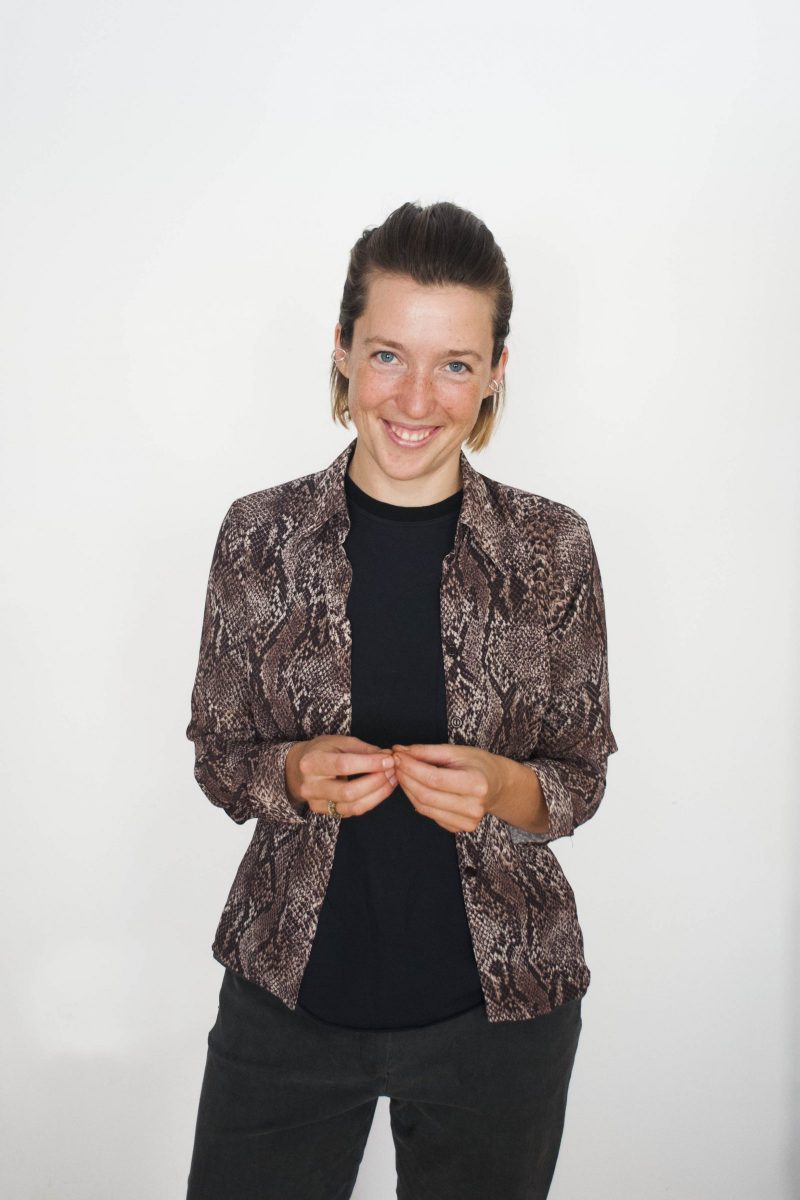Munich Startup: Who are you and what do you do? Please introduce yourself!

Anna Hadzelek, Re-Shirt: Hello there! I’m Anna and come from the fashion world: After studying design in Bremen, I worked for a Munich label for several years. Now I’m the founder of Re-Shirt and am the person behind our innovation: the first reversible textile printing technology. It’s the first method for printing shirts temporarily. That means I’m constantly shifting between the workshop and desk, between technical experimentation and organization.
Munich Startup: What problem does your startup solve?
Anna Hadzelek: In very general terms, the problem we’re working on solving is: the wasting of resources. More specifically, we’re focusing on textile waste, which has become firmly established in our consumption patterns.
Lower environmental costs for events
With Re-Shirt, we’re reducing textile waste by appealing to teams and communities: Anyone who would like to equip a team with uniform attire for an event can, thanks to our new technology, rent printed shirts with a minimum order of 20 units and give them back after the event. That’s how we relieve large events from high environmental costs – for example, from 3,000 liters of water consumption per shirt.
We also offer a solution to people who would like to continue to wear their shirts, namely permanent print on second-hand shirts. This is particularly suited in the field of merchandise or for non-profit associations and goes easy on resources.
Munich Startup: But that’s nothing out of the box!
Anna Hadzelek: It actually is! What is out of the box are very large quantities of good, unprinted shirts that land at sorting companies and, at worst, even end up getting shredded. And that’s simply because the total amount of old clothes – approximately 1.2 million tons a year in Germany – is so huge.
Printed shirts for rent
The fact that we’re the first company to offer printing on second-hand shirts is because it requires a good network and a couple of logistical tricks of the trade. It’s something we’re familiar with from home: It’s often more difficult to find something than to go out and buy it again, so you end up owning eight lint removers. On top of that, it’s great being the first company to be able to offer printed shirts for rent and, to be honest, it makes us a bit proud.
Munich Startup: What have been your three biggest challenges so far?
Anna Hadzelek: Three all at once? Yikes! Developing the printing technology didn’t come easy, that’s right at the top of the list. To keep on going during the pandemic also took some staying power – and it was very much worth it. And the third, it’s sure to come up.
Munich Startup: How is business going?
Anna Hadzelek: It’s going well! Our team is growing, as is our network of sorting, printing and washing companies.
Munich Startup: What do you think about Munich as a startup location?
Anna Hadzelek: We’re in an inspired and respectful environment here with a relatively high concentration of very accessible institutions that offer consultation and funding services. We’ve already met many people on our journey who have been willing to listen, which is great. At the same time, there’s major price pressure on the infrastructure level, but that’s simply the downside of dense networks. We’re happy to be here.
Munich Startup: Risk or security?
Anna Hadzelek: For me, the question is like “food or drink?” – and the answer is the same: both, of course! But risk becomes less appealing without any kind of security. And vice-versa.



